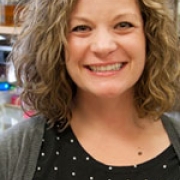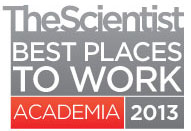
Trainee Spotlight: Lauren S. Fink, PhD
-
Lauren S. Fink, PhD

Postdoctoral Traniee
Dr. Jeffrey Peterson's Lab
Fox Chase Cancer Center
[email protected]Biography
Lauren really found her love for science in 12th grade after taking an advanced biology course with an amazingly passionate teacher who let the class dissect cats. She went on to study Biology and Biochemistry at Villanova University. She attended graduate school at Drexel University College of Medicine, where she did her thesis work in Chris Sell’s lab studying the interface of DNA repair proteins, telomeres, and lifespan. Always interested in studying cancer, Lauren joined Jeff Peterson’s lab at Fox Chase for her postdoctoral work, where she helped to pioneer a new research area in the lab studying kinase dependency in triple-negative breast cancer. Currently, Lauren is expanding her research to include examining kinase activation in ovarian cancer to identify new targets for single agents and combination therapeutics (in collaboration with James Duncan at Fox Chase Cancer Center). Her career goal is to continue working in the area of cancer therapeutics to identify therapeutics for difficult-to-treat cancers that lack effective targeted agents.
Research Overview
Triple-negative breast cancer (TNBC) is very aggressive, has a poor prognosis, and is disproportionately found in younger women and African-American women. Importantly, there are no effective targeted therapies for this disease, making the identification of therapeutic targets critical. Recently, six subtypes of TNBC were identified based on gene expression data from several hundred patient tumors. Our current work utilized cell line models from each of these subtypes to assess the value of the subtypes for predicting response to kinase inhibition using a pharmacological approach. In general, we found poor correlation of the gene expression-based subtypes with response to kinase inhibition, which suggests that expression alone may not be the best predictor of kinase inhibitor response. We found a group of TNBC cell lines that was highly dependent on EGFR as well as a PTEN-mutant group that was sensitive to PI3K pathway inhibitors. Our work highlights the importance of functional pharmacological profiling in predicting therapeutic response.
Featured Publication
The Scientist Rates Fox Chase a Best Place to Work in Academia

The Scientist rates Fox Chase Cancer Center 7th on the list of Top Ten Best Places to Work Academia 2013.
